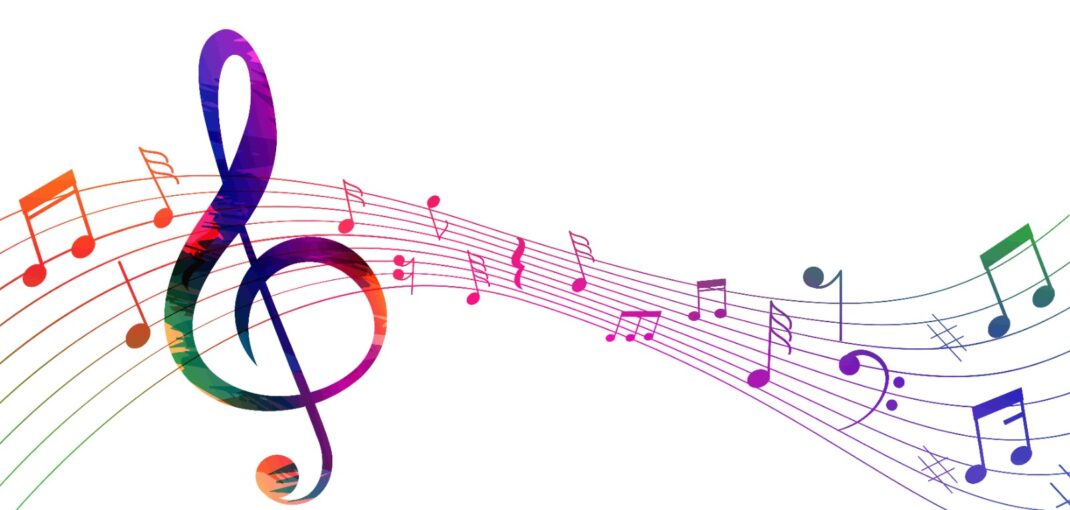Writing meaningful lyrics isn’t just about rhyming lines or filling up a page; it’s more about telling stories and the truth about your feelings. As a lyric writer, you have the power of turning real thoughts and emotions into words that stick, that move, that matter. Whether you’re just starting your songwriting journey or have been doing it for years, one thing stays the same: your lyrics need to connect. When you write song lyrics, do you see your words hit someone in the heart? That’s when a good song becomes unforgettable.
In this guide, we’ll share some tips for writing lyrics that feel honest, creative, and true to you. These aren’t just random ideas; this is how songwriters write their songs. If you want to write songs, keep in mind that people don’t just hear but feel.
Start with a Clear Message
Every great song starts with a reason. It begins with a spark, a small idea or feeling that makes you want to write. It’s the “why” behind your lyrics.
Are you telling a story about a road trip with the windows down? Or is it a sad moment after a heartbreak? Maybe it’s a short, happy memory you want to hold on to. Whatever it is, knowing your purpose gives your lyrics power. Without it, your words may feel lost or empty.
Imagine a moment, something maybe beautiful or sad. Maybe it’s about a quiet night alone or a busy street full of noise. Just close your eyes. Think about what you saw and felt. Start writing what you heard, smelled, or touched. Maybe it’s the smell of wet ground, the creak of a chair, or the taste of dust in the air. These small things help your lyrics come alive. They paint a picture your listeners can see and feel.
This doesn’t mean you must tell exact facts. It means your lyrics should feel real. A song about heartbreak doesn’t need every detail of a breakup; it just needs to sound honest, like the quiet after a fight. When your song feels true, people will connect with it. Instead of saying, “I’m sad,” you could write something that touches people’s hearts, allowing them to feel the words and emotions. Something that paints a picture.
Be Authentic
The best lyrics come from you, the real you. Not the version you think people want to hear. Not someone else’s story. Just you.
Your best days, your worst nights, your weird little moments, they all matter. Maybe it’s the feeling of sitting alone, or laughing so hard your stomach hurts. Maybe it’s heartbreak. Maybe it’s hope. Whatever it is, it’s yours. And that’s what makes it powerful. Just look at Taylor Swift. She once said,
“If you’re horrible to me, I’m going to write a song about it, and you won’t like it. That’s how I operate.”
And she means it. She writes what she lives. She turns real feelings into songs that stick. That doesn’t mean you have to write about revenge, but you should write what’s true for you. Whether it’s love, pain, boredom, or joy, say it like you really feel it.
And please, skip the boring, overused lines like “my heart is broken” or “I’m all alone.” They don’t hit anymore. People have heard them a thousand times. Instead, talk about a moment. Something only you can say. Think about the song Hurt by Nine Inch Nails. He doesn’t just say “I’m hurting.”
He sings:
“I hurt myself today to see if I still feel.”
See the difference? It’s small, but it makes you feel something. That hits. It’s raw. It’s real. That’s what you want. Don’t try to sound perfect. Don’t try to impress. Just be you. Be honest. Be brave.
Use Simple Words
Don’t try to sound complicated, just write like you talk. Using simple words makes your lyrics easier to understand and easier to sing. When your lyrics feel natural, people connect with them more. Let your words flow like you’re talking to a friend.
Experiment with Structure and Rhyme
Most songs follow a basic pattern, kind of like a blueprint. This helps the song stay clear and flow smoothly. You’ve probably heard these parts before: verse, chorus, and bridge.
- The verse is where the story begins. It sets the scene, shares emotions, and brings the listener in.
- The chorus is the heart of the song. It’s the part people remember and sing along to. It’s often catchy and repeats the main idea.
- The bridge is the twist. It sounds different and gives the song a fresh moment before returning to the chorus.
This structure helps, but don’t let it box you in. Rules are great, until they get in the way of creativity. So go ahead. If your song feels better with two choruses or a surprise verse at the end, try it.
Now let’s talk about rhyme. Rhymes make your lyrics flow and stick in people’s heads. But they don’t have to be perfect.
You can use:
- Perfect rhyme
- Or Close rhymes
What matters most is that your words feel real. If a rhyme doesn’t fit, don’t force it. Let them bend and stretch to match the mood of your music.
Tell a Story
Balance between telling a story and making the words flow with the music is really important because a great song isn’t just about nice lyrics. It’s about how those lyrics feel when they’re sung. To write lyrics that work, you need to find the right balance between them. You can imagine it like this: Your lyrics are a story, and your music is the voice that brings it to life.
Your song might start with a feeling or a scene. Then it moves forward, shows what’s happening, and wraps up in a way that feels complete. That’s the story side of songwriting. People love songs that take them on a journey, something they can follow, feel, and remember.
But here’s the thing, even the best story won’t work if the words feel awkward when you sing them. That’s where musicality comes in. Your lyrics should match the beat and mood of the music. They should glide along with the melody, not trip over it.
A great way to practice this is to write while listening to your music. Feel the rhythm. Say your lines out loud. Do they fit the beat? Do they sound natural?
Also, don’t be afraid to play with structure. Try new rhyme patterns. Shift a line around. Cut a word. Add a pause. Sometimes the smallest change can make your lyrics sing better with the music.
Balancing story and sound might take some practice, but when it clicks, you’ll know. Your song will feel smooth, connected, and full of life. So go ahead, write your truth, feel the rhythm, and let your lyrics dance with the music.
Craft Emotional Depth
Emotions matter. If you want your lyrics to stick in people’s minds, then try something that touches their hearts so they can relate and feel something. One of the best ways to do that is by using metaphors, similes, and strong images. These tools turn plain words into pictures that your listeners can see in their heads.
Joni Mitchell once said,
“You could write a song about some kind of emotional problem you are having, but it would not be a good song… until it went through a period of sensitivity to a moment of clarity.”
That means: don’t just tell us how you feel, show it in a clear and powerful way. Because images make your lyrics feel alive. They add emotion and depth. So next time you write, don’t just say how you feel, show it.
Keep Polishing Your Lyrics
Your first draft is only the beginning. Good lyrics need work. Go back and fix your words. Cut out anything extra. Make your lines clear and strong. So that every word should help tell your story or show your feelings. Legendary singer Bob Dylan once said,
“I consider myself a poet first and a musician second. I live like a poet and I’ll die like a poet.”
Collaborate with Others
When you start writing lyrics, you’ll feel something amazing, and your words begin to move with the music’s rhythm. This makes your song sound smooth and helps new ideas flow easily.
But here’s the best part: you don’t have to do it alone! Writing songs with someone else can make your lyrics stronger and more exciting. When you team up, you share new ideas and feelings that make the song special.
If you’re excited to try something fresh and fun, don’t be shy. Find a friend or another musician to write with. Working together can take your songs to a whole new level.
Final Thought
Writing meaningful lyrics is not about being perfect. It’s about being real. It’s about sharing your true thoughts and feelings in a way others can feel too. When your words are honest, people connect with them.
Don’t worry if your first try isn’t great. Keep writing. Try again. Change a few lines. Add new ideas. Let your heart lead the way. And remember, you don’t have to do it alone. Share your lyrics, write with a friend, and get inspired by others. Your words can make someone smile, cry, or feel less alone.
So go ahead. Pick up your pen, follow your feelings, and start writing lyrics that truly matter.






